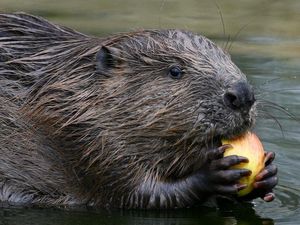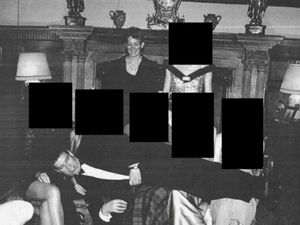Beavers to become protected species under new legislation
There had been calls for beavers to be given European Protected Species, with a consultation last year indicating support for the move.

Beavers are to be given legal protection in Scotland, it has been announced.
The Scottish Government confirmed that legislation will be brought in to add beavers to a European list for protected species of animals.
There have been calls, including from the Scottish Wildlife Trust, for the animals to be included on the list.
A consultation in October last year received more than 500 responses, with a majority (83%) supporting the move.
The law will mean that, from May, shooting will only be allowed under licence, which will be managed by Scottish Natural Heritage (SNH).
All licences will be issued in accordance with the law on European Protected Species.
Beavers became extinct in Britain in the 16th century, mainly due to over-hunting.
However, between 2009 and 2014, sixteen Eurasian beavers were successfully introduced to Knapdale Forest, Argyll and Bute, with the benefits and impacts being independently monitored by SNH.
Environment Secretary Roseanna Cunningham said: “The Scottish Government believes in the highest standards of animal welfare for both wild and domestic animals, and we felt it was high time that beavers enjoyed the same legal protection as other species like bats, dolphins, wildcats and otters.
“There are few species that have such a significant and, largely positive, influence on the health and function of our ecosystems. The importance of beavers to Scotland’s biodiversity is huge.
“However, we recognise that beavers can have a significant impact on farming, particularly in areas like Strathmore, which is why we have been working closely with farmers and partner agencies to establish management plans, as well as a licensing system for culling when there is no other alternative.”
SNH chief executive Francesca Osowska said: “We welcome this news from the Scottish Government.
“Beavers benefit nature, creating habitats such as ponds and wetlands where other species thrive, as well as alleviating flooding and improving water quality.
“But it will sometimes be necessary to minimise or prevent beavers’ impacts on farming, and other interests.
“In readiness for beavers’ protected species status, SNH has been working with a range of partners, including Scottish Government, farmer and conservation bodies, to produce a strategy for beavers’ sustainable future.”
A five-year partnership project, the Scottish Beaver trial, was established between the Scottish Wildlife Trust (SWT), the Royal Zoological Society of Scotland (RZSS), and Forestry Commission Scotland during the reintroduction of beavers to the country.
Jonny Hughes, SWT chief executive said: “We are delighted that the Scottish Government has finally given the green light to granting beavers European Protected Status.
“Legal protection, alongside a suitable management framework, is necessary to ensure we benefit fully from their return and also ensure land managers can deal with localised negative impacts.
“The return of beavers to Scotland’s lochs and rivers offers widespread ecological benefits.
“Beavers are well-known for their engineering prowess, creating wetland havens that provide homes for many other species including fish, insects and waterbirds, while also helping humans by reducing the risk of floods down river.
“They are also providing a boost to Scotland’s rural economy by increasing wildlife tourism.”
Barbara Smith, RZSS chief executive, said: “The granting of European Protected Status is a vital step in welcoming beavers back to Scotland as a natural part of our ecosystem.
“This is a milestone for the many of us who have worked together for years on the return of this species.
“Legal protection accompanied by a proper framework for management is critical to ensuring that beavers can be protected and live alongside people long into the future.”





